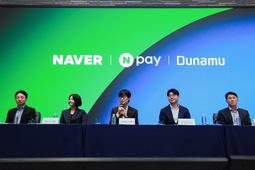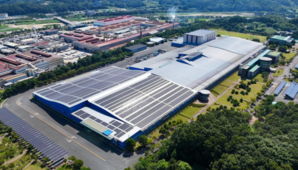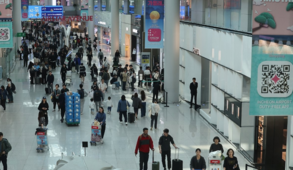
[News Space=Reporter seungwon lee] Despite the increase in sales in 2024, Novartis Korea (CEO Yoo Byung-jae) saw its profitability decline as both operating profit and net profit decreased. The operating profit ratio also fell to 3.7%. In addition, short-term borrowings increased and cash assets remain at 0 won, making liquidity management weak.
The scale of purchases and debts with special related parties (head office, etc.) is large, and the financial structure has improved somewhat due to inventory asset reduction and restructuring (dramatic reduction in retirement benefits), but the group dependency and cost structure risks still exist. Complex financial and management risks such as uncertainties such as lawsuits, dependence on new drugs, and foreign currency and interest rate fluctuations are continuously exposed.
According to the Financial Supervisory Service's electronic disclosure system audit report, Novartis Korea's sales in 2024 increased by 4.6% to KRW 678.7 billion from KRW 649.1 billion the previous year. Sales growth was maintained, but operating profit decreased by 14.7% to KRW 25.1 billion from KRW 29.4 billion the previous year, and net income decreased by 8.4% to KRW 26.3 billion from KRW 28.7 billion the previous year.
The decrease in operating profit is analyzed to have been largely influenced by the increase in cost of sales, including inventory and outsourcing costs. On the other hand, net profit exceeded operating profit as non-operating sector revenue, such as non-operating commission income, increased.
Operating profit margin was 3.7%, slightly lower than the previous year's 4.5%.
Retained earnings remained at a similar level to the previous year's 113.6 billion won at 115.9 billion won.
Novartis Korea paid a dividend of 24 billion won in 2024. This is an increase of 11 billion won from 13 billion won in the previous year (2023). 100% of the dividend was paid to the parent company Novartis Pharma AG and the top controlling company Novartis AG.
Selling and administrative expenses decreased by 0.9% to KRW 125.1 billion from KRW 126.3 billion the previous year. Specifically, advertising and publicity expenses were KRW 15 billion (KRW 12.2 billion the previous year), salaries KRW 43.7 billion (KRW 44.5 billion the previous year), commissions KRW 823 million (KRW 756 million the previous year), severance pay KRW 2.5 billion (KRW 6.4 billion the previous year), and general research and development expenses KRW 28 billion (KRW 29.6 billion the previous year).
The compensation details for executives, including salaries, amounted to 805 million won.
The purchase volume from special related parties (mainly the controlling company Novartis Pharma AG, etc.) in 2024 was KRW 499.8 billion, a decrease of approximately KRW 93.1 billion compared to KRW 592.9 billion in the previous year.
In addition, debt to special related parties decreased by more than half from KRW 75.6 billion in 2023 to KRW 37 billion.
Sales with special related parties decreased slightly year-on-year to KRW 14.3 billion (KRW 16.7 billion in 2023).
Receivables to special related parties decreased slightly year-on-year to KRW 3.4 billion (KRW 3.7 billion in 2023).
Total debt decreased by about 20% year-on-year to KRW 147.5 billion (KRW 185.1 billion in 2023). The debt ratio decreased slightly from 134.1% in the previous year to 105.1%, indicating improved financial stability.
The current ratio is 187.8% (170.2% in 2023), and current assets significantly exceed current liabilities (KRW 141.8 billion in 2024 and KRW 177.7 billion in 2023), indicating very good short-term payment ability.
Short-term borrowings increased by approximately KRW 7 billion year-on-year to KRW 22.9 billion (KRW 15.9 billion in 2023).
Intangible assets such as goodwill amount to 300 million won, the same as the previous year.
A corporate financial analysis expert analyzed, "Transactions with special related parties are highly dependent on the group's headquarters, focusing on purchases and debt, and both transaction volume and debt have decreased since 2024." He added, "The financial structure has become more stable as total debt, debt ratio, and current liabilities have decreased."
◆ Novartis Korea's Risk: Legal Litigation and Cash Assets of 0 Won
A lawsuit for 'patent infringement prohibition and prevention' is pending against Novartis Korea as the plaintiff.
This lawsuit stems from a dispute between generic drug companies over the patents of original drugs, and the outcome could have a major impact on business, including the timing of generic drug launches, market share, and damages.
In a recent Supreme Court ruling, domestic generic companies including Korea Pharmbio won the patent dispute over 'Revolade' (immune thrombocytopenia treatment) (April 2025), and Novartis failed to defend itself in the trial to confirm the scope of rights to three Revolade tablet formulation patents, allowing domestic generic companies including Korea Pharmbio to enter the market.
In addition, patent disputes over major new drugs such as 'Entresto (Sacubitril, Valsartan)' are ongoing, and although the generic company won in the first trial, Novartis appealed the remaining two cases, including the 'salt and hydrate patent' and the 'crystal form patent', and the second trial at the Patent Court is in progress. If the decision is overturned in the second trial, the early launch of the generic company could be reinterpreted as patent infringement, which could lead to a large-scale damages claim.
Novartis announced that it will appeal to the Supreme Court if it loses in the second trial, and the lawsuit is expected to be prolonged until 2026. Currently, 10 generic companies (Hanmi Pharmaceutical, Chong Kun Dang, etc.) have secured the right to sell, but the launch of generics in the second half of 2025 is expected to be determined depending on the results of the second trial.
Past illegal rebate lawsuits were also concluded with fines and other penalties by the Supreme Court, but reputational risks persist due to guilty verdicts for the company and some of its executives and employees.
The peculiar part is that cash assets are 0 won, the same as the previous year. This is because there is no operating balance or most of the funds are allocated to short-term operating or settlement accounts. This is interpreted as a difference in operating methods rather than a lack of actual liquidity.
A corporate finance analysis expert pointed out that, "The fact that cash equivalents are 0 seems to mean that funds are tied up in transactions with the headquarters and group affiliates or in short-term operations, or that cash equivalents are minimized in accordance with the group-level fund management policy." He added, "However, with a considerable amount of short-term borrowings (KRW 22.8 billion) and current liabilities (KRW 141.8 billion), this could raise market concerns about the possibility of a liquidity crisis."
He also explained, "In particular, given the nature of multinational pharmaceutical companies, the proportion of transactions with special related parties (headquarters, etc.) is very high, and the structure of relying on the group's financial policy without securing cash assets is likely to be interpreted as financial instability and limitations in independent management from the perspective of external stakeholders (investors, financial institutions, partners)."
◆ History and governance structure of Novartis Korea
Novartis Korea was established on September 20, 1984, pursuant to a joint venture agreement signed on May 2, 1984 between Dongwha Pharmaceutical Co., Ltd. and Sandoz Ltd. (now Novartis AG) of Switzerland. It was registered as a foreign investment company under the Foreign Investment Promotion Act in May 1986.
The company changed its name from Korea Sandoz Co., Ltd. to the current name on April 1, 1997, and its headquarters is located on the 49th floor of Three IFC Building, 10 Gukjegeumyung-ro, Yeongdeungpo-gu, Seoul.
The capital is 24.5 billion won, and looking at the current shareholder status as of the end of the period, Novartis AG holds 17.6% of common stock and Novartis Pharma AG holds 82.4%, while Novartis AG holds 33.3% of preferred stock and Novartis Pharma AG holds 66.7%.
As of 2025, the number of employees at Novartis Korea (Novartis Korea) is estimated to be around 450-500. The number of people covered by the National Pension and Employment Insurance is estimated to be around 452-480, and the ratio of internal and external employees is approximately 1:1. As of 2024-2025, the average annual salary is estimated to be 60.32 million won (Wanted), 79.34 million won (Incruit), and 81.96 million won (Saramin). The starting annual salary for new employees is estimated to be in the early to mid 60 million won range.
The percentage of female employees among all employees is close to 60%, and the percentage of female executives is around 64%, which is a case in which the percentage of female leadership is considerably high even among global pharmaceutical companies.
◆ Novartis’ pharmaceutical portfolio
Global pharmaceutical company Novartis is building a portfolio of innovative medicines in various therapeutic areas, including oncology, immune diseases, cardiovascular, respiratory, ophthalmology, neurology, and rare diseases.
In the field of anticancer drugs, the company has a variety of innovative new drugs, including Afinitor tablets (everolimus), Botrient tablets (pazopanib), Tasigna capsules (nilotinib), Jakavi tablets (lusolitinib), Rafinna capsules (dabrafenib), Zykadia capsules (ceritinib), Kymriah (tisagenlecleucel), Lutathera (lutetium octreotide), and Sandostatin (octreotide).
In the field of immune diseases and autoimmune diseases, Cosentyx (secukinumab) and Ilaris (canakinumab) are representative. In the field of cardiovascular and metabolic diseases, Entresto (sacubitril/valsartan), Diovan (valsartan), and Cordiovan (valsartan/hydrochlorothiazide) are considered major products.
Respiratory disease treatments include Atactra inhalation capsules (indacaterol/mometasone) and Zoturna inhalation capsules (indacaterol/glycopyrronium). In the ophthalmic disease sector, Biovu (brolucizumab), Azopt eye drops (brinzolamide), Betoptic-S (betaxolol), Vigamox (moxifloxacin), and glaucoma and conjunctivitis treatments such as Travatan, Duotrave, and Patanol are widely used in the domestic market.
Neurological and psychiatric treatments include Clozaril (clozapine), Tegretol (carbamazepine), Trileptal (oxcarbazepine), and Aimovic (erenumab). In the rare disease and gene therapy areas, innovative treatments such as Zolgensma (onasemnogene abeparvovec) and Luxturna (voretizine nepavovec) are attracting attention.
In addition, the company is solidifying its position in the global pharmaceutical market through various major brands such as Exjade (deferasirox), Certican (everolimus), Sandimune Neoral (cyclosporin), and Lamisil (terbinafine).
























































